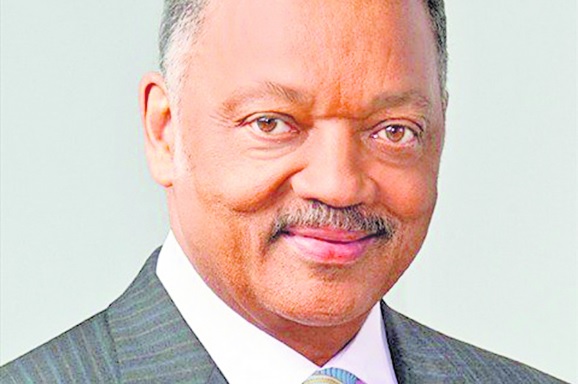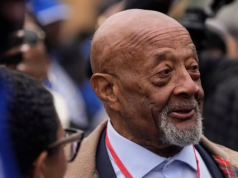By Rev. Jesse L. Jackson, Sr.
Fidel Castro, Cuba’s leader for almost six decades, has died at 90 in Havana. USA Today’s headline on Monday read, “No Mourning in Miami,” noting the continued bitterness of those who left Cuba. The Washington Post featured testimonies condemning Castro’s authoritarian government. A revolutionary, a brutal dictator who sided with the USSR in the Cold War, a sponsor of guerilla wars, leader of a failed economy — Castro’s death has unleashed the full indictment against him.
We need a broader view, a more clear-eyed analysis of the man and his times. Why was this leader of a small island nation 90 miles off our coast celebrated across Africa and Latin America? How could he survive the determined efforts of the U.S. government to oust him, outlasting 11 American presidents? Why did Nelson Mandela praise and thank him?
Castro led the Cuban Revolution against a brutal dictator to victory in 1959. Always more a devotee of Marti — the Cuban poet and patriot who led the revolt against Spain — than of Marx, Castro set out to nationalize foreign companies that owned and dominated most of the island, implement land reform, expand schools and clinics, and set Cuba on an independent course.
There were victims of the revolution, for whom we continue to seek family unification. Some elites and some common people fled the turmoil of revolution. Relations with the U.S. quickly soured. John Kennedy signed off on the “covert” Bay of Pigs invasion by a CIA-organized and -trained army of Cuban exiles. They were defeated easily, and the CIA never forgave Castro for the embarrassment. The U.S. launched multiple assassination attempts, enforced an economic embargo and tried various ways to sabotage the Cuban economy. Cut off from the hemisphere, Castro turned to the Soviet Union, which supplied oil and aid. The U.S. strangled and starved him into strength.
Castro’s defiance and pride consolidated the hatred of U.S. governing circles. He exported doctors and teachers while the U.S. exported weapons and war. Across the world — and in parts of the U.S. — Castro was and is celebrated. He stood with Africans against European imperialism and South African apartheid. He stood with Latin Americans against Yankee domination and corrupt local regimes. He dispatched doctors across the world to non-aligned nations, earning friends and saving lives. In 1975, he launched an audacious airlift of Cuban troops to repel the South African invasion of Angola, marking the beginning of the end for apartheid. He celebrated Mandela while the U.S. government was supporting the apartheid government and labeling Mandela a terrorist.
In 1959, Castro came to the United Nations in New York City. He chose to stay in the Hotel Teresa in Harlem and met with Malcolm X, acts scorned as a publicity stunt. But in 1959, African Americans couldn’t stay in white hotels across the South. We lived under the American version of apartheid. Neighborhoods across the country were redlined by race.
Castro was the first Cuban leader to recognize his country’s large black population, descended from slaves, and to help integrate them into national life. Castro’s embrace of civil rights was an electric message across the black community in the U.S.
When I first met Castro in 1984, I found him to be a magnetic personality, a brilliant mind and a proud leader. I was told I couldn’t talk to him about religion. We talked for hours. He told me he had once loved the church and thought of it as a center of activism and social justice, not just piety. But when he came down out of the mountains after defeating the brutal dictator, he was shocked and heartbroken to find the priests armed and ready to kill to defend the graveyards of the rich. I reminded him of Dr. Martin Luther King and the other theologians of liberation, and Castro came to church with me in Havana. It was the first time Castro had gone to church in 27 years. I had to remind him to take off his hat and put out his cigar. We laughed and settled in for the service.
I was told he wouldn’t talk about political prisoners. We talked, and he released 48 prisoners to me. In later years, Castro’s government cooperated with the U.S. in countering terrorism. His health and education systems became the envy of much of the hemisphere. He was hero and mentor to a new generation of populist nationalists across the hemisphere — from Hugo Chavez in Venezuela to Evo Morales in Bolivia.
Castro’s legacy is surely mixed. Under constant threat from abroad, he jailed political enemies, suppressed free speech and trampled on rights. Cuba’s economy stagnated, particularly after the Soviet Union fell apart, but it survived despite being cut off from a major logical trading partner.
U.S. enmity helped make Castro a global hero, a symbol of the possibility of independence for developing nations, but it inflicted great costs upon the Cuban people. The U.S. recognized and traded with the Soviet Union, with communist China, with brutal regimes from Saudi Arabia to Pinochet’s Chile, but the embargo against Cuba went on and on. When Barack Obama came to the White House, he discovered that instead of isolating Castro, the embargo was isolating the U.S. in our own hemisphere. After nearly 60 years of a frozen failed policy, the U.S. finally has started small steps toward normal relations.
We shouldn’t be naive. Castro was no saint; the Cuban regime was repressive and wrong-headed about many things. But we shouldn’t view Castro solely from the perspective of those who fled the revolution or of the Cold Warriors and covert operators who spent decades trying to bring him down. We won’t understand the perversity of our own policies if we don’t understand why Castro’s leadership is celebrated across much of the world.





